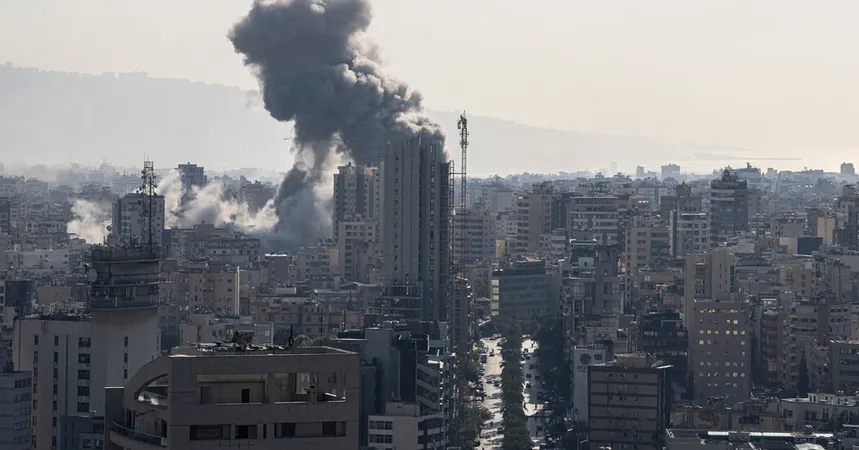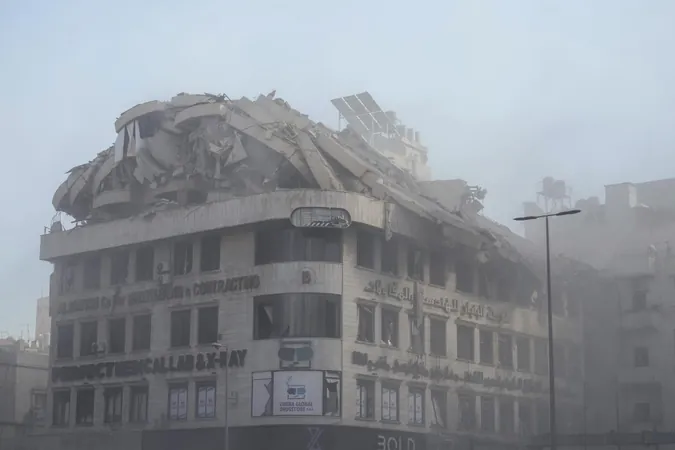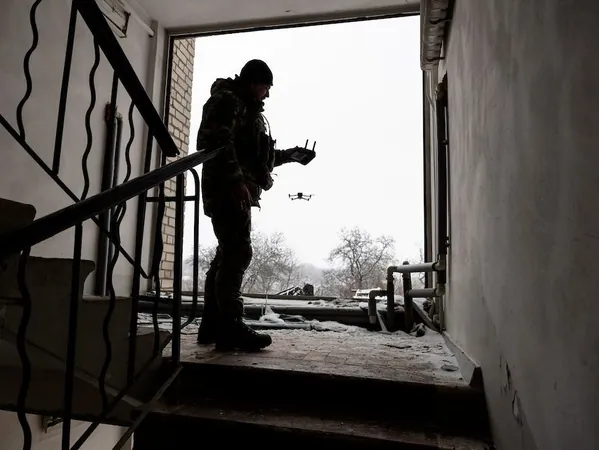
Israel Intensifies Airstrikes on Southern Lebanon Amid Escalating Conflict with Hezbollah
2024-11-22
Author: Chun
Israel has escalated its military campaign against Hezbollah militants in Lebanon, continuing a series of airstrikes on Friday, even after issuing evacuation orders for civilians in the southern regions of the country. This surge in violence comes amidst ongoing diplomatic efforts led by U.S. officials aimed at negotiating a cease-fire.
The Israeli Defense Forces (IDF) launched "a series of raids" targeting the Dahiya neighborhood, a stronghold for Hezbollah located near Beirut. Avichay Adraee, an IDF spokesman, reported that the Dahiya area, once densely populated with civilians, has faced extensive bombardments and has been especially hard-hit over the last few days.
Strikes were also directed at the vicinity of Tyre, coinciding with Lebanon's Independence Day celebrations. The IDF's unusual evacuation order has put entire towns on alert, with civilians urged to relocate to safety zones at least 20 miles north.
Tragically, the conflict has taken a toll on medical personnel; Lebanon's health ministry confirmed that two recent airstrikes resulted in the deaths of five paramedics. This is part of a broader trend, as the health system has endured 126 assaults this year, killing 223 health workers and injuring 183 others, according to the World Health Organization's representative in Lebanon. Most of these attacks have targeted ambulances, raising serious concerns about humanitarian conditions in the region.
Amid these hostilities, U.S. envoy Amos Hochstein is attempting to broker a cease-fire agreement. Discussions held last week with both Israeli officials and members of the Lebanese government reported some progress, but no definitive conclusions have been reached. According to a Lebanese official familiar with the negotiations, the current responsibility lies with Israel, which maintains hope for a favorable outcome yet acknowledges that a cease-fire is not guaranteed.
Hezbollah's leadership has indicated readiness to respond to U.S. negotiations, emphasizing that the outcome hinges on Israeli Prime Minister Benjamin Netanyahu's commitment to a genuine cease-fire. However, both sides have pledged to continue military operations during these diplomatic discussions, seeing a recent intensification in violence.
Reports indicate that at least ten of the deceased victims hailed from the village of Flaoui, with health officials confirming that children were among those killed. This grim reality has left many locals, like Hussein Awada, in despair. Awada, who returned to his home in Dahiya to retrieve money, narrowly escaped before another Israeli airstrike reduced a nearby building to ruins.
The human rights organization Amnesty International criticized Israel's evacuation warnings, asserting they are insufficient—often communicated solely through social media, leaving many unaware of imminent danger.
Since the conflict reignited in September, over 3,500 individuals have lost their lives in Lebanon, and close to a quarter of the population has been displaced. Experts indicate that the current levels of violence are reminiscent of the dark days during Lebanon's 15-year civil war that ended in 1990.
In the intensifying conflict, Hezbollah has claimed responsibility for multiple strikes against Israeli forces stationed near Khiam, a key southern town, while a base operated by the United Nations peacekeeping mission—UNIFIL—has also come under attack, resulting in injuries to four Italian peacekeepers.
As violence continues to escalate in Southern Lebanon, the damage caused by this conflict is worsening a broader humanitarian crisis, with countless families living on the brink of despair.
In related news, the ongoing conflict has also impacted Gaza. Reports indicate that the Israeli military recently struck the Kamal Adwan Hospital, injuring medical workers and damaging vital infrastructure, raising alarms over the humanitarian situation in the territory.
As 2024 unfolds, at least 281 aid workers globally have been killed, marking a troubling trend fueled by conflicts such as the war in Gaza, highlighting the urgency for a cease-fire and humanitarian access in both Lebanon and Gaza.


 Brasil (PT)
Brasil (PT)
 Canada (EN)
Canada (EN)
 Chile (ES)
Chile (ES)
 España (ES)
España (ES)
 France (FR)
France (FR)
 Hong Kong (EN)
Hong Kong (EN)
 Italia (IT)
Italia (IT)
 日本 (JA)
日本 (JA)
 Magyarország (HU)
Magyarország (HU)
 Norge (NO)
Norge (NO)
 Polska (PL)
Polska (PL)
 Schweiz (DE)
Schweiz (DE)
 Singapore (EN)
Singapore (EN)
 Sverige (SV)
Sverige (SV)
 Suomi (FI)
Suomi (FI)
 Türkiye (TR)
Türkiye (TR)